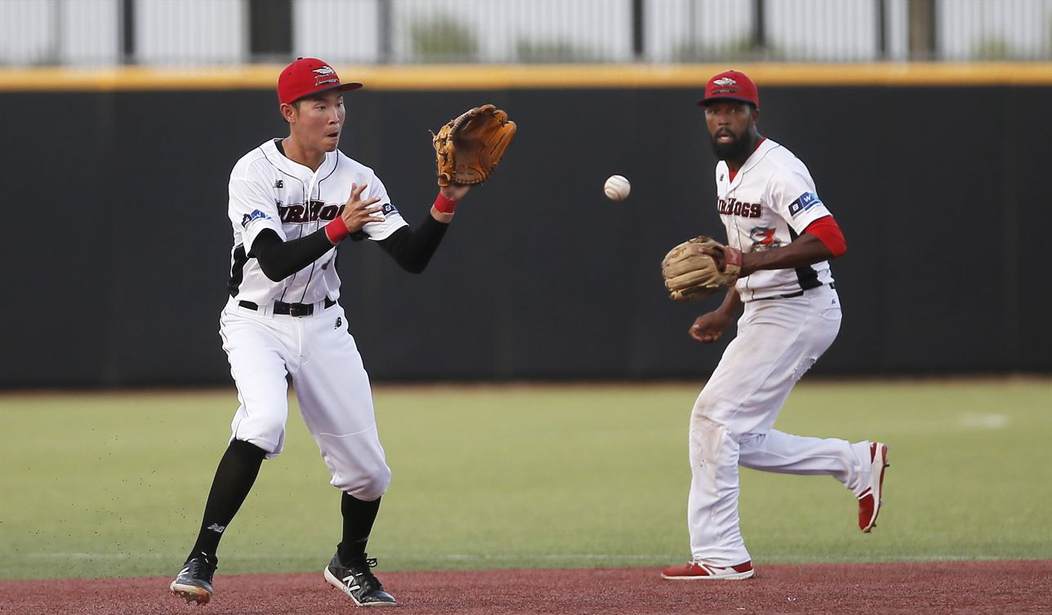Here at the sports desk located somewhere below decks of the Good Pirate Ship RedState, we’ve noticed a certain lack of, shall we say, sympathy toward professional athletes complaining about their pay and working conditions. This is understandable. As an example, you have the San Diego Padres’ Fernando Tatis Jr. signing a 14-year contract with $340M guaranteed, then missing the entire 2022 season first due to breaking his wrist falling off a motorbike, then getting suspended for PED use. Seriously, dude? At least he finally had surgery on the lingering shoulder injury that kept taking him out of the lineup last year.
In a minor league ballplayer’s world, such “problems” do not exist. ZipRecruiter’s stats aren’t sports savvy, but they are telling.
As of Aug 31, 2022, the average annual pay for a Minor League Baseball Player in the United States is $36,764 a year.
Just in case you need a simple salary calculator, that works out to be approximately $17.68 an hour. This is the equivalent of $707/week or $3,063/month.
While ZipRecruiter is seeing annual salaries as high as $71,000 and as low as $16,000, the majority of Minor League Baseball Player salaries currently range between $22,500 (25th percentile) to $41,500 (75th percentile) with top earners (90th percentile) making $54,000 annually across the United States. The average pay range for a Minor League Baseball Player varies greatly (by as much as $19,000), which suggests there may be many opportunities for advancement and increased pay based on skill level, location and years of experience.
Once you’re done chucking over that last line, bear in mind the minimum major league ballplayer salary is $700K. The average salary is $4.1M. Nice work if you can get it.
After articles in 2021 highlighted the less than stellar living conditions many minor league players face, Major League Baseball (MLB) agreed to kick it up a notch for 2022 with provided housing. This, however, has not assuaged the notion that dream-chasing should not automatically put the kibosh on pie-eating. With this in mind, the Major League Baseball Players Association (MLBPA) is aggressively seeking to include minor league players under its gilded wings. Following the sending in late August 2022 of cards to minor league players asking if they would like to join the MLBPA, with more than half the players stating their desire to do so, the MLBPA has now both asked MLB to voluntarily recognize the union now incorporating minor league players and has joined forces with the AFL-CIO.
Finding straight, unbiased reporting on unions by newspeople and sportswriters belonging to one is a tad challenging. Therefore, we offer our analysis. It’s difficult to argue against the notion of minor league players deserving a decent salary. However, the immediate question arises as to who will pay for this. Major league teams pay all of their minor league players’ salaries. They have to. Minor league teams play in much cozier facilities than their major league overlords. They charge far less for tickets to both maintain a neighborhood-friendly feel and encourage people to come to the games where disposable income is often a scarce commodity. Minor league teams don’t have national broadcast contracts to fill their coffers. Everything is on the local level. In short, no revenue sources at the minor league level are available to tap for any player pay raise.
Therefore, if there is to be a pay raise, it will have to come from the major league team owners, half of which can’t stand paying their current players let alone possible but not guaranteed ones. For every Los Angeles Dodgers or San Diego Padres willingly backing up the armored truck to their clubhouse, there’s an Oakland A’s or Pittsburgh Pirates barely willing to pay the light bill for night games. Since, in theory, you’d have to have minimum and maximum overall salaries for minor leagues very close to one another, the lower-rung teams will be yelling loud and long. Also, one suspects the MLB will want a hard cap on individual and team salaries to prevent high rollers from buying everyone decent.
Another possible complication is how a minor league unionization agreement could end one of major league baseball’s cornerstones. Namely, teams that are either trying to rebuild, or significantly underperforming, looking to trade their better or best players to contenders in return for bushel basketfuls of minor league prospects. Since one of the primary motivations for sellers in such a market is saving salary, if the cost of two or three top-tier minor leaguers is in the area of what an established player earns, the math isn’t hard.
To summarize, there is every reason to believe both MLB and the MLBPA will do everything within their power to screw things up and turn even more people off to professional sports.














Join the conversation as a VIP Member